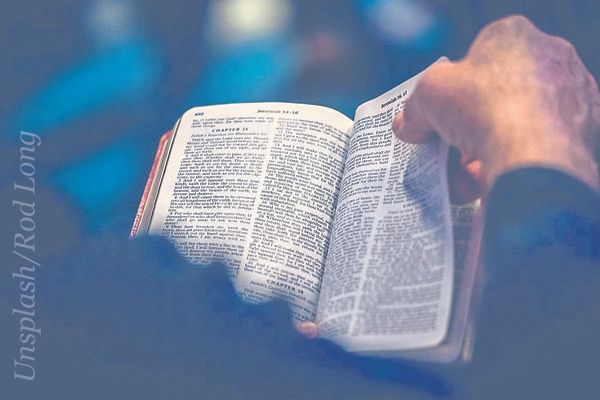‘Doomsday massacre warnings “ignored”.’ That was the headline of an article in the Daily Telegraph on 31 March 2000. The article concerned the Ugandan cult, Movement for the Restoration of the Ten Commandments of God, responsible for the killing of almost a thousand of its followers. Details of this cult tragedy are chilling and distressing. Possibly the total number of the dead will never be known.
Warning signs
Had there been any hint that a tragedy of this proportion could occur? Yes. In fact, during a visit to London on 30 March, Uganda’s President Yoweri Museveni stated: ‘Some intelligence officers filed reports saying that this is a dangerous group but at one level it was not forwarded. It was just ignored’ (Telegraph, 31 March 2000). Ugandan police now believe that several of the cult’s leaders avoided death and are in hiding, after taking money and valuable items from their members.
It was precisely this kind of tragedy that MI5 endeavoured to prevent happening in the UK. As we saw in the March issue, their detailed ‘threat assessment’ of what are called ‘apocalyptic and millennial groups’ was extensive and, so far, effective.
One of the cults MI5 identified in their report as being potentially dangerous was ‘Concerned Christians’. Having described last month the cult’s emergence, and their failure to submit their beliefs and practices to the supreme authority of the Bible, we underline in this article two other principles with regard to this cult.

Sufficiency of the Bible
Related to the Bible’s supreme authority is the crucial principle of the Bible’s sufficiency. What does this mean? Basically, it tells us that all we need for knowing and pleasing God is found in the Bible.
If you want principles of guidance for your life or church, and to understand what God plans to do in the future, then it is to the Bible you must turn. You do not need any other ‘special’ book, revelation or prophecy. The reason is obvious. Only in the Bible has God given us this special revelation of himself and his plans.
At this point the cults, like some religions, make a disastrous mistake which can be illustrated by reference to Concerned Christians. Their leader, Monte Kim Miller, believes he is a prophet and a special one, too.
Miller has claimed that God was using him as a messenger to speak directly to his followers. For example, he predicted that a major earthquake would affect the city of Denver on 10 October 1998. The result? Over seventy cult members left the Denver area after selling their homes, furniture and cars. And the catastrophe did not occur!
But this was not the end of his prophecies. Miller then predicted that he himself would be killed in the streets of Jerusalem in December 1999 and be resurrected three days later, ushering in the end of the world. Although proved wrong again, many folk still believe what he says.
Test the spirits
There are two tests we should always apply in this kind of situation. The first is to apply criteria from the Bible. For example, the words of Deuteronomy 18:21-22: ‘And if you say in your heart, “How shall we know the word which the Lord has not spoken?” when a prophet speaks in the name of the Lord, if the thing does not happen or come to pass, that is the thing which the Lord has not spoken’ [italics mine]. By this test, Miller is not just a crank; he is a false prophet.
The second test is related, but highlights the sufficiency of the Bible. We do not need Miller’s prophecies about the end of the world. It is important to grasp the reason for this. It is because the Lord has revealed in the Bible all that it is necessary for us to know about the future and the end of the world.
This Bible information is extensive and reasonably detailed. The Bible really is sufficient for us. To underline Miller’s error even further, remember that the Lord Jesus condemns date-fixing. ‘But of that day and hour,’ he insists, ‘no one knows, no, not even the angels of heaven, but my Father only’ (Matthew 24:36).
How does God speak?
But there is another way in which the sufficiency of Scripture is denied by this cult leader. This relates to his claim to receive direct revelations from God.
Miller actually tells followers that God is speaking through him. Rachel Powell observed how Miller’s followers, like Dustin Blythe, ‘just sincerely believe that it’s the Lord speaking, and they don’t want to disobey God that’s how seriously they take it’.
Or think of a store owner, Jack Hook, who became a close friend of Miller until four years ago. The friendship ended in 1996, soon after he received a phone call from Miller in which the cult leader declared, seriously and repeatedly: ‘I’m speaking in the voice of God’.
Hook rightly dismissed this claim because he knew that God speaks now, as always, through the Bible. An Illinois housewife, Debbie, is representative of many of Miller’s followers who have heard his alleged ‘God-speaking’.
Her response was one of shock but also fascination, so she wrote down on paper some of Miller’s pronouncements. It was almost three years before Debbie broke away from Miller and saw that he was contradicting the Bible and denying its sufficiency in claiming continuing revelation from God through his own lips.
No one needs additional revelation. Nor should you listen to individuals who claim private messages and revelations from God. Rather, we should rely exclusively on the Bible, for it alone is the authoritative and sufficient Word of God for all generations.
The end time
A final principle is that Christians need to be alert, and much less gullible, in recognising cultic beliefs and practices. One indicator, as we have seen, is a group’s preoccupation with the imminent end of the world. This can be scary, creating an unhealthy frenzy and fear for those who do not know the Bible.
A second indicator is the dominance of a single ‘charismatic’ leader who demands submission and obedience to himself and his interpretations, rather than to the Bible itself. Beware! This tendency is sometimes apparent even in Evangelical circles.
A third indicator is the cult’s claim to be the only group which possesses ‘the truth’. This is usually backed up by the claim that the cult is to exercise a unique, major role in bringing about the end time.
A fourth indicator is that the leader, or leaders, dominate and closely control members. There is clear evidence that Miller isolates his followers from their own families and controls their lives, even to the point of how they should spend an evening.
A fifth indicator is doctrinal: a cult modifies or denies major Bible teachings. Always test what people teach by the standard of Scripture.
One never knows
Do Concerned Christians pose a threat to society? London academic Eileen Barker is unsure, but adds, ‘One never knows’. The Religious Tolerance organisation in the United States suggests that the cult is peaceful in intent. They point to the fact that security forces in Israel and the West ‘have made public only accusations of violent plans’.
By contrast, the MI5 has identified this cult as a potential ‘threat to national security’ and has done so on the basis of extensive research and monitoring.
Beyond the security and sociological aspects of this debate, one needs to give priority to the biblical dimension. The Lord Jesus warned, ‘Many false prophets will rise up and deceive many’ (Matthew 24:11).
This is reinforced by the apostle Paul: ‘Now the Spirit expressly says that in latter times some will depart from the faith’ (1 Timothy 4:1). Church leaders, therefore, need to be vigilant in ensuring that all their teaching is thoroughly biblical.
But the best antidote to false religion is the gospel of God’s grace in Christ. The ‘glorious gospel of the blessed God’ (1 Timothy1:11) must be preached urgently, prayerfully and widely. This is the gospel of grace, centring in ‘Christ Jesus [who] came into the world to save sinners’ (v.15). No one else can save.









